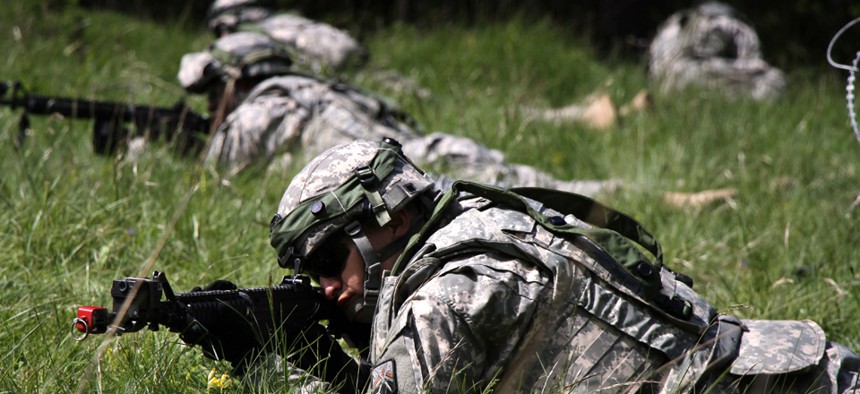
Defense Department
Defense Spending Bill Calls for 1.8 Percent Pay Raise for Troops
House panel begins work Friday on the fiscal 2015 appropriations bill.
A House panel begins work Friday on the massive fiscal 2015 Defense spending bill, which includes a 1.8 percent pay boost for service members next year.
The legislation, which the Defense Appropriations Subcommittee will mark up, includes a total of $128.1 billion for military pay and personnel. “This funding level is $669 million below the fiscal year 2014 enacted level, but is sufficient to meet all needs due to reductions in force structure and large unexpended balances,” stated a press release from the Appropriations Committee summarizing the bill.
The 1.8 percent pay increase is in line with the House-passed Defense authorization bill. It is more than President Obama’s proposed 1 percent pay raise for military personnel in 2015, and the 1 percent boost currently in the Senate Defense authorization legislation.
The formula for determining service members’ annual pay increase is based on the Bureau of Labor Statistics’ Employment Cost Index and the growth in private-sector wages. But under the law (Title 37, Chapter 19, Section 1009) the president has the authority to set an alternate pay raise for military personnel, citing a national emergency or fiscal concerns, if Congress doesn’t pass legislation adjusting the amount or canceling it. The 1990 Federal Employees Pay Comparability Act allows the president through executive order to set a pay raise for federal civilian employees under the same circumstances.
The House spending bill also restores $100 million to the Defense Commissary Agency to provide reduced-price food and household goods for service members and their families. President Obama has proposed significant cuts to military commissaries, the heavily-subsidized stores on base where service members and their families buy food and other goods, which House lawmakers so far have rejected.
The legislation funding the Defense Department is likely to be one of the few stand-alone appropriations bills Congress passes before the end of the fiscal year.







